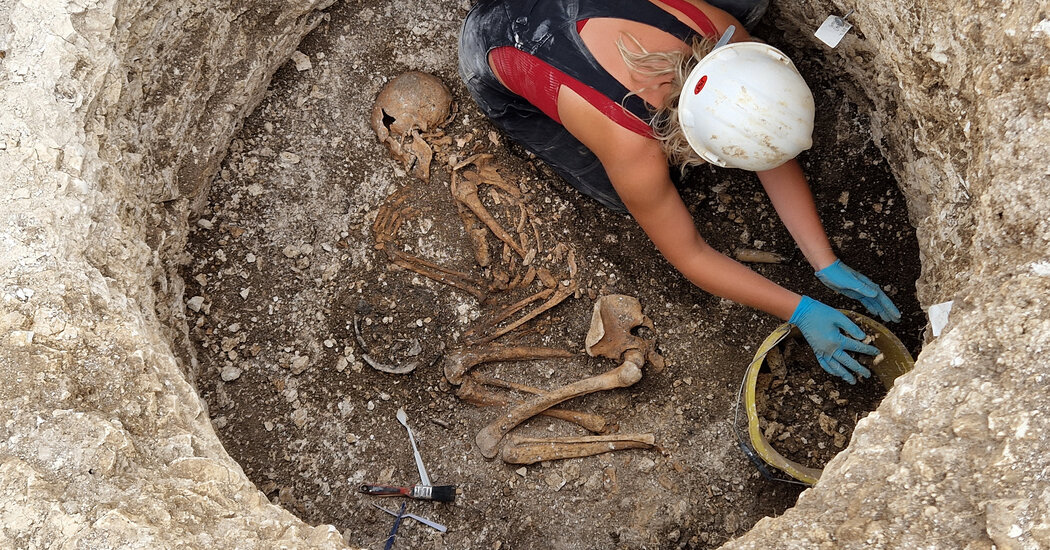An ancient cemetery reveals a Celtic tribe that lived in England 2,000 years ago and that was organized around maternal lineages, according to a DNA analysis.
A tantalizing vision of a women-centric society has emerged from an ancient cemetery in the bucolic countryside of southwest England.
Whereas women commonly left home to join their husbands’ families upon marriage, the Durotriges, a Celtic tribe that lived in Dorset 2,000 years ago, bucked the mold with a system called matrilocality, wherein women remained in their ancestral communities and men migrated for marriage.
By analyzing the genomes of 57 Durotrigan people buried sometime from about 100 B.C. to A.D. 100, scientists found maternal lineages typical of matrilocality. This was the first time this system had been identified in European prehistory.
Meanwhile, individuals with ancestries unrelated to the dominant line were mostly men, suggesting that they had moved from other communities to live with the families of their wives, according to a study published on Wednesday in the journal Nature.
“I was not expecting such a strong signature of matrilocality,” said Lara Cassidy, an assistant professor in genetics at Trinity College Dublin who led the study. “When that came out of the data, it was a bit of a shock.”
“But upon reflection, if you look at what classical writers were talking about and if you look at the archaeological context, there are a lot of hints that women were able to attain high status in these societies,” she added.
